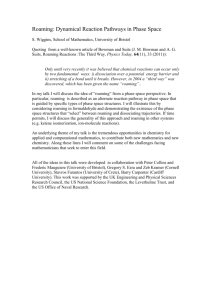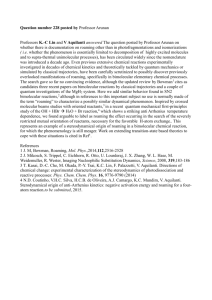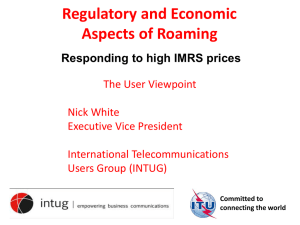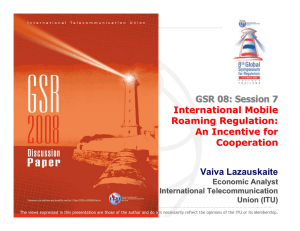Contribution of the President of the Office of Electronic Communications... consultation. Taking into account EU regulation (Directives ...
advertisement
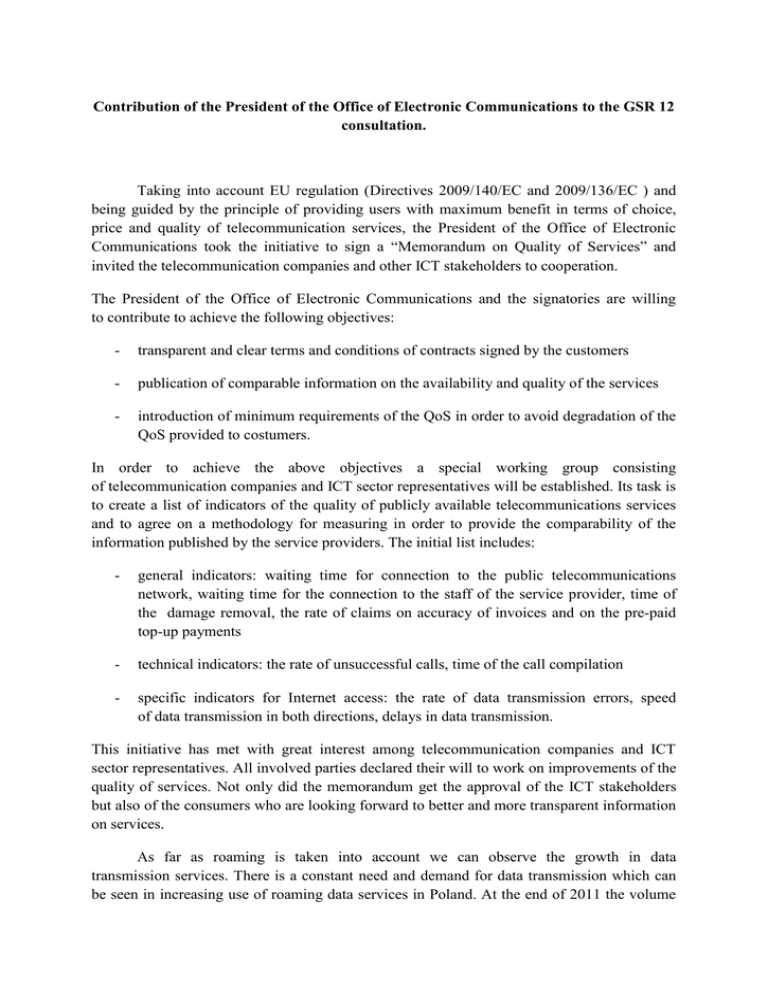
Contribution of the President of the Office of Electronic Communications to the GSR 12 consultation. Taking into account EU regulation (Directives 2009/140/EC and 2009/136/EC ) and being guided by the principle of providing users with maximum benefit in terms of choice, price and quality of telecommunication services, the President of the Office of Electronic Communications took the initiative to sign a “Memorandum on Quality of Services” and invited the telecommunication companies and other ICT stakeholders to cooperation. The President of the Office of Electronic Communications and the signatories are willing to contribute to achieve the following objectives: - transparent and clear terms and conditions of contracts signed by the customers - publication of comparable information on the availability and quality of the services - introduction of minimum requirements of the QoS in order to avoid degradation of the QoS provided to costumers. In order to achieve the above objectives a special working group consisting of telecommunication companies and ICT sector representatives will be established. Its task is to create a list of indicators of the quality of publicly available telecommunications services and to agree on a methodology for measuring in order to provide the comparability of the information published by the service providers. The initial list includes: - general indicators: waiting time for connection to the public telecommunications network, waiting time for the connection to the staff of the service provider, time of the damage removal, the rate of claims on accuracy of invoices and on the pre-paid top-up payments - technical indicators: the rate of unsuccessful calls, time of the call compilation - specific indicators for Internet access: the rate of data transmission errors, speed of data transmission in both directions, delays in data transmission. This initiative has met with great interest among telecommunication companies and ICT sector representatives. All involved parties declared their will to work on improvements of the quality of services. Not only did the memorandum get the approval of the ICT stakeholders but also of the consumers who are looking forward to better and more transparent information on services. As far as roaming is taken into account we can observe the growth in data transmission services. There is a constant need and demand for data transmission which can be seen in increasing use of roaming data services in Poland. At the end of 2011 the volume of roaming data services increased by over 38% compared to 2010 and amounted to 9.4 million MB. In 2006, the President of UKE as a result of a conducted analysis concluded that the domestic market for the provision of international roaming in public mobile telephone networks is competitive. Roaming services regulations, due to their crossborder nature are developed at the European Union level. This issue due to the globalization processes, increase of travelers and accessibility of mobile services is becoming one of the most important subjects in ICT sector. Before the entry into force of the new EU roaming regulation, there were no limits in Poland for the retail prices charged by network operators for roaming data transmission as well as for phone calls and SMS. A price limit is defined as the maximum rate, which constitutes a kind of protection for customers. Operators in order to compete can offer lower rates. At the national level NRAs on their own were not able to regulate the roaming services. Poland was one of the countries which from the beginning wanted to regulate that problem and lower the prices. This issue has an international dimension which in our opinion should be solved at the international level. EU countries can be seen as a role model of how this may be dealt with on a wider scale. Abovementioned regulatory examples are just a tip of the iceberg. There are many other important fields of ICT which should be addressed at the international level. The only thing we need to bear in mind during any legislative procedures, both national and international are some basic rules that have to be respected, that is the consumer interest and its safety, the quality of delivered services as well as the state independence. The opportunity for dealing not only with the international roaming problem but also with many other important issues will appear soon, during the upcoming ITR revision.

